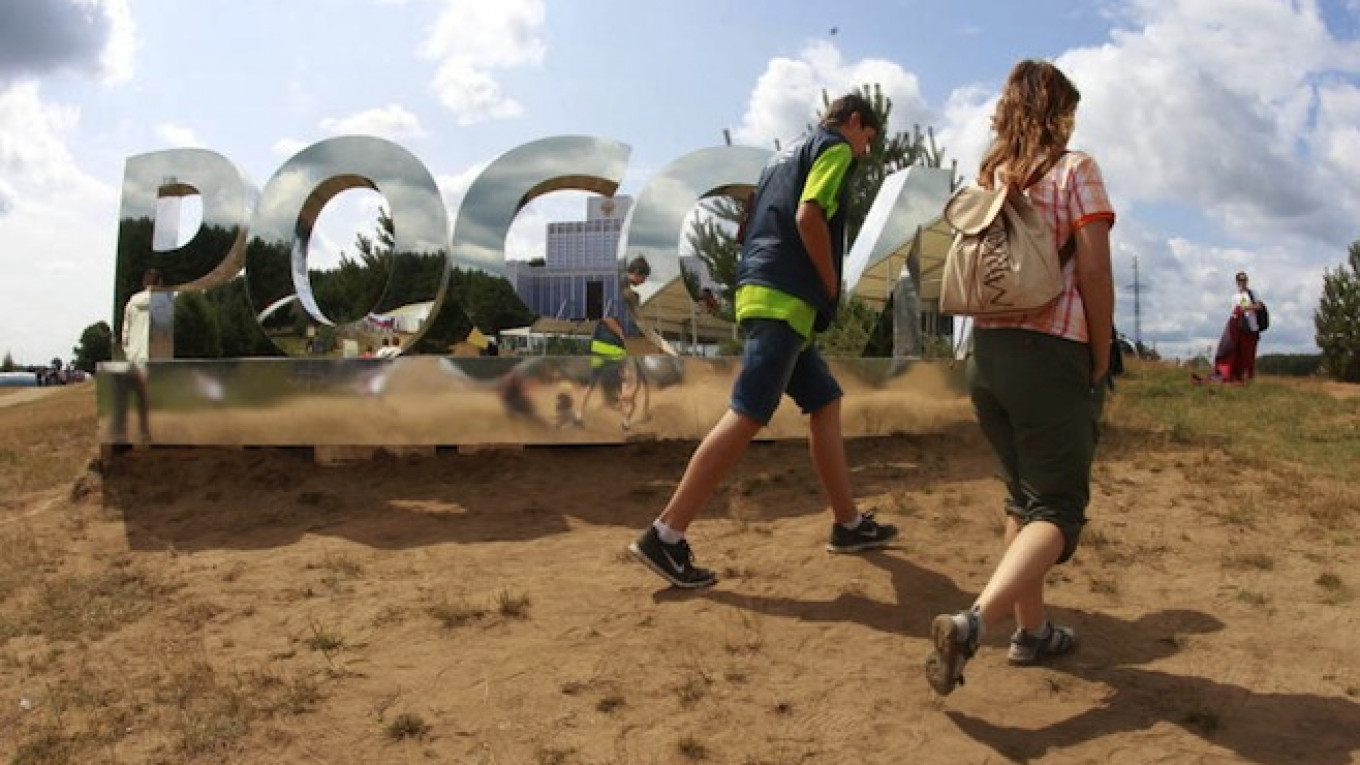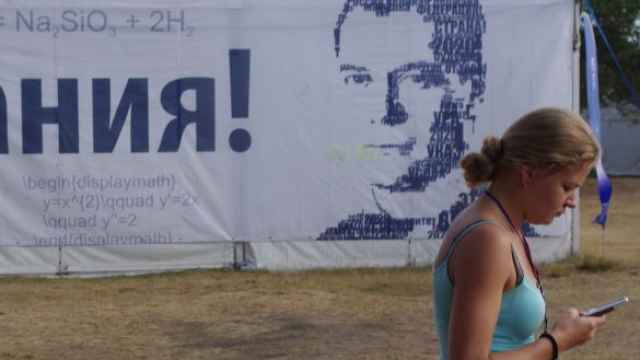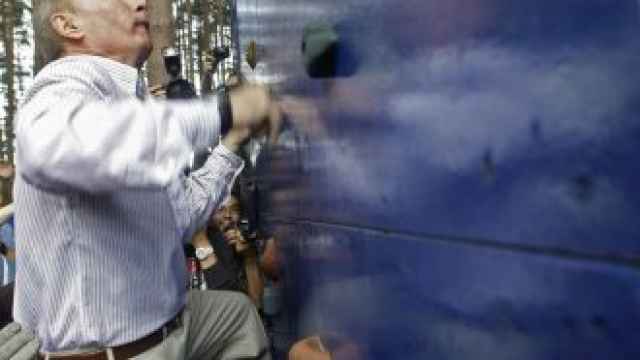The Russian government will replace the infamous annual pro-Kremlin youth camp on Lake Seliger this year with two others: one in the Vladimir region and another in Crimea, a youth affairs spokesman said.
Over the last 10 years the Seliger youth forum has become a symbol of the Kremlin's efforts to win the hearts and minds of young, active Russians. President Vladimir Putin has been shown extensively on state television visiting the camp and taking questions from forum participants.
Putin may attend both of the new forums, Sergei Pospelov, head of Rosmolodezh — the federal agency for youth affairs — told news agency Interfax.
"I don't have information right now about which one he would like to attend more, we would welcome him at both," Pospelov said.
According to Pospelov, the Territory of Ideas forum in the Vladimir region will unite young economists, ecologists, politicians and inventors, while the Tavrida (Tauride) one in newly annexed Crimea will attract poets, writers, artists and actors.
In addition to the new main camps, other youth forums will take place across Russia, from Kaliningrad in the west to the Kuril Islands in the Far East, Pospelov was cited as saying.
The Lake Seliger area in the Tver region, originally established as a gathering for the pro-Putin youth group Nashi, will host a smaller-scale event for young people from central Russia, he said.
The 2010 Seliger event hit the headlines when it emerged that the forum had featured an installation of 13 mounted portraits of Kremlin critics and foreign politicians — including former U.S. Secretary of State Condoleezza Rice and opposition leader Boris Nemtsov, who was murdered in Moscow last month — wearing hats with Nazi symbols. A poster nearby said "You are not welcome here."
A Message from The Moscow Times:
Dear readers,
We are facing unprecedented challenges. Russia's Prosecutor General's Office has designated The Moscow Times as an "undesirable" organization, criminalizing our work and putting our staff at risk of prosecution. This follows our earlier unjust labeling as a "foreign agent."
These actions are direct attempts to silence independent journalism in Russia. The authorities claim our work "discredits the decisions of the Russian leadership." We see things differently: we strive to provide accurate, unbiased reporting on Russia.
We, the journalists of The Moscow Times, refuse to be silenced. But to continue our work, we need your help.
Your support, no matter how small, makes a world of difference. If you can, please support us monthly starting from just $2. It's quick to set up, and every contribution makes a significant impact.
By supporting The Moscow Times, you're defending open, independent journalism in the face of repression. Thank you for standing with us.
Remind me later.






